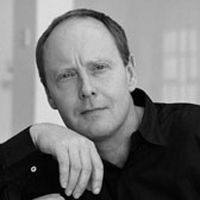One of the best things about Handel's Messiah (and his other oratorios) was that performances of English oratorios inspired Haydn to compose The Creation. The origins of the libretto are a little murky, beginning supposedly with an English text, now lost, that was translated into German by Baron Gottfried van Swieten (for the latest research, see the article by Neil Jenkins in the Journal of the Haydn Society of Great Britain from 2005). The sources of the text (.PDF file by Neil Jenkins) include Genesis, the Psalms, Milton, and John Thomson. In any case, the language that Haydn worked with was the German, and its "re-translation" back into English is problematic enough that many performances in English-speaking countries use the German version. For this excellent recording, Paul McCreesh has attempted a rescue of the English (see the version by Jenkins -- .PDF file), with harmonious results. There should be a slot for it on your shelf, right next to William Christie's recent recording of the German version with Les Arts Florissants.
McCreesh, ever careful about his performance practice choices, has opted to try to recreate what it is likely that Haydn had in mind. Namely, the overblown style of oratorio he had heard in London, with large orchestras and choruses, which was recreated in the earliest performances of the work in Vienna. That may not sound all that inviting, but he augments his Gabrieli Consort and Players by partnering with young musicians from Chetham's School of Music in Manchester. The sound is large but still refined and musically sensitive, of a sort that tempts one to forget about the label of historically informed performance (HIP) altogether.
Just like Christie, McCreesh has called on five soloists, single-casting the often doubled roles (Gabriel/Eve and Raphael/Adam). Singing Uriel, who is more or less the oratorio's main narrative voice, is the exquisite Mark Padmore, a British tenor in the Ian Bostridge vein. This is a thoroughly English Uriel, contrasted by the ever so slightly French-tinged English of Sandrine Piau's Gabriel. Neither is the sort of singer to impress solely by force, although Piau shines over the chorus radiantly. The other soloists -- Neal Davies as a growling Raphael, Peter Harvey and Miah Persson as a warm, well-matched Adam and Eve -- round out an ideal cast, who sound equally well alone and in their various ensemble combinations.
McCreesh has Timothy Roberts accompany the recitatives, crucial hinge pieces that can often be neglected, on a fortepiano based on an early 19th-century Viennese instrument by Josef Brodmann. For me the test always comes at the end of the second part, where the creation of mankind is a source of wonderment. Here is where Haydn composed some of his most delectable music, especially the concluding angelic trio ("On thee each living soul awaits") with its wandering clarinet lines. It is likely the most perfect musical statement of the Enlightenment's humanist message, found in Uriel's gorgeous aria In native worth and honour clad. The lines "and in his eye with brightness shines the soul, / the breath and image of his God," on which Haydn dwells, are the later counterpart to the image of Adam's creation on the Sistine Chapel ceiling.






























































